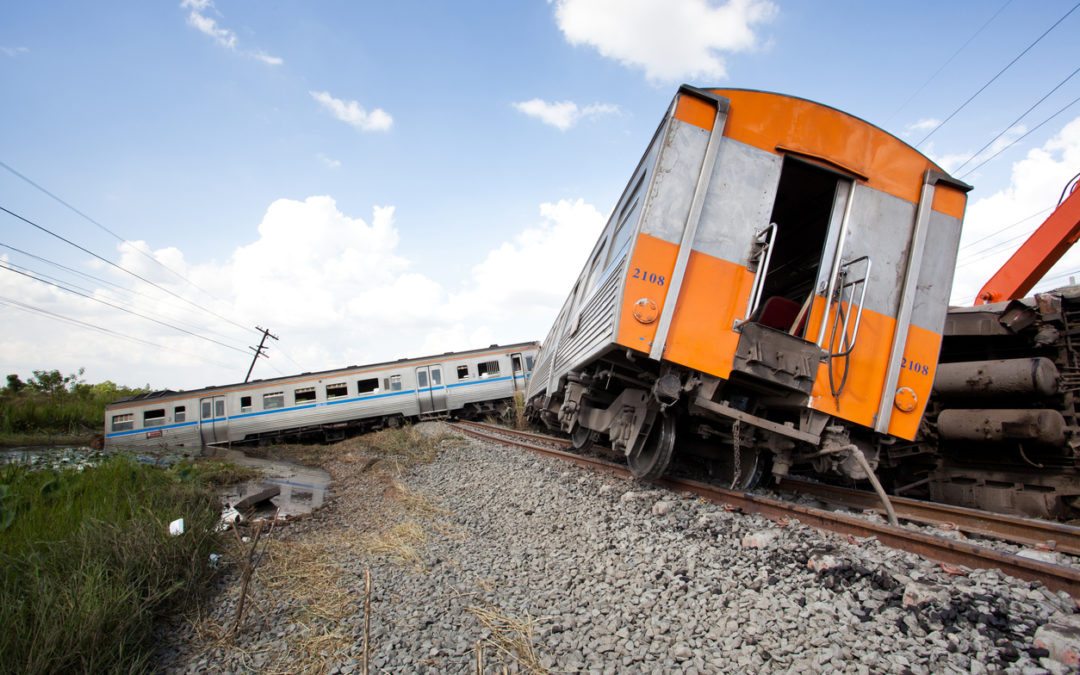Amtrak is facing a growing number of lawsuits on behalf of people who were injured or killed in train accidents.
What You Can Do & How We Can Help
The Schmidt Firm, PLLC is currently accepting Amtrak induced injury cases in all 50 states. If you or somebody you know has been injured in an Amtrak train accident, you should contact our lawyers immediately for a free case consultation. Please use the form below to contact our Train & Railroad Accident Litigation Group or call toll free 24 hours a day at (866) 920-0753.
Amtrak Train Accident in South Carolina
In February 2018, an Amtrak passenger train hit a freight train in South Carolina, injuring more than 100 passengers and killing the conductor and an engineer.
The deadly train accident occurred on February 4, 2018, around 2:45 a.m. near Columbia, South Carolina. The Amtrak train was traveling from New York to Miami at about 59 mph with 147 people on board.
The Amtrak slammed into an empty CSX fright train on a stretch of track that was operated by CSX. At the time of the accident, CSX was manually operating train signals because their system was down.
At least 116 passengers on the Amtrak train were injured, mostly suffering from cuts, bruises, and whiplash. Two people were killed — Amtrak conductor Michael Cella, 36, of Orange Park, Florida and engineer Michael Kempf, 54, of Savannah, Georgia.
Amtrak Train Accident Lawsuit Filed in Washington
Lawyers for an injured Amtrak conductor have filed a lawsuit (PDF) against Amtrak for failing to provide a safe working environment. The lawsuit was filed on behalf of Garrick Freeman, a conductor who suffered rib and hip injuries when the train derailed at 78-mph in a 30-mph zone.
The circumstances were eerily similar to another Amtrak crash near Philadelphia in 2015 in which 8 people were killed when the train derailed as it sped through a sharp curve.
Would Safety Technology Prevent Train Accidents?
After a train accident in California in 2008 killed 25 people, Congress required that all railroads in the United States adopt “positive train control” (PTC), a GPS-enabled safety system that tracks the locations of all trains to prevent collisions between two trains on the same track.
PTC technology is being used in the Northeast, but not in many other states that operate tracks used by Amtrak passenger trains.
Despite the mandate from Congress, railroads have been slow to adopt PTC technology — and they have repeatedly asked for extensions on the deadline, even as deadly crashes continue to occur.
The Transportation Department has had little choice but to grant the extensions, frustrating lawmakers who set a 2018 deadline.
Congress never intended the extensions be used “to allow railroads that have dragged their feet to just blow off the mandate,” said Rep. Peter DeFazio of Oregon.
“By the end of 2020 is the absolute deadline everybody has to have it installed and implemented, which means operating everywhere they are required to have it operating.”
Amtrak has said it will complete its work on PTC by December 2018, but its trains often operate on tracks owned by other railroads.
That was the case in the deadly accident in South Carolina in February 2018. The National Transportation Safety Board has said the PTC technology could have prevented the collision, and the derailment of an Amtrak train in December near Olympia, Washington.
Do I have an Amtrak Train Accident Lawsuit?
The Schmidt Firm, PLLC is currently accepting Amtrak induced injury cases in all 50 states. If you or somebody you know has been injured in an Amtrak train accident, you should contact our lawyers immediately for a free case consultation. Please use the form below to contact our Train & Railroad Accident Litigation Group or call toll free 24 hours a day at (866) 920-0753.
Attention Lawyers: We consider a referral from another law firm to be one of the greatest compliments. If your firm is interested in referring us a case or for us to send you a list of previous award judgments and/or average referral fees, please visit the Lawyer Referral section of our website.


 The Schmidt Firm, PLLC has been recognized as one of the nation’s leading plaintiffs' law firms and handles cases in all 50 states. We are very proud of our legal achievements, but equally self-respecting of our firm's reputation for providing personal attention to each and every client we represent.
The Schmidt Firm, PLLC has been recognized as one of the nation’s leading plaintiffs' law firms and handles cases in all 50 states. We are very proud of our legal achievements, but equally self-respecting of our firm's reputation for providing personal attention to each and every client we represent.

